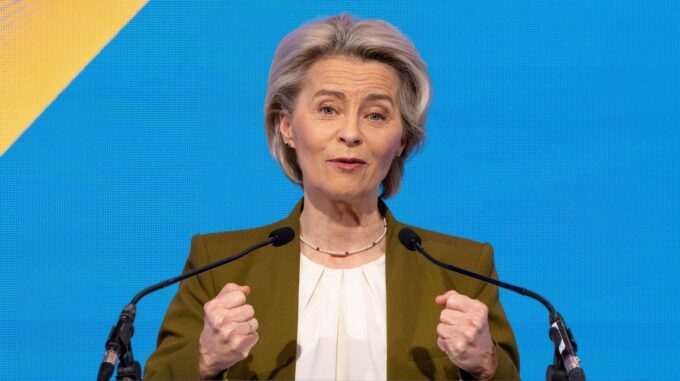The European Union is preparing a comprehensive plan for energy diversification and a gradual phase-out of Russian energy resources in the context of strengthening energy independence

According to official sources, the most anticipated document is a road map that will define specific steps to reduce dependence on Russian gas and oil imports. It is already nearing completion and is expected to be presented soon. European Commission President Ursula von der Leyen announced this during a speech in London, where she emphasized that the European Union is moving quickly and purposefully toward reducing its energy dependence on Russia, focusing entirely on diversifying sources and seeking alternative suppliers. She highlighted that significant progress has been made in decreasing the share of Russian gas in import structures—from 45% in 2021 to approximately 18% now. This was achieved through increased purchases of liquefied natural gas (LNG) from the United States and energy agreements with Norway. "Supplying LNG from the United States and increasing imports from Norway remain strategically important for the European Union. They allow us to significantly reduce reliance on Russian gas and ensure energy supply stability amid global geopolitical challenges," said the European Commission President. Regarding the future plan, Ursula von der Leyen did not specify an exact date for the official publication of the road map, but her agenda suggests that the document could be presented as early as May 6. At the same time, EU official institutions note that the development of analytical and legal frameworks is ongoing. The plan involves not only a gradual reduction in Russian gas imports but also utilizing various legal tools to achieve these objectives. In particular, there is consideration of implementing a ban on companies signing new gas contracts with Russia or establishing legal grounds for terminating existing agreements. However, some member states previously expressed reservations about the speed of such measures, given the risks to energy security and market stability. This explains why, within the sanctions packages against Russia, the idea of banning Russian LNG imports was ultimately rejected. Instead, focus has shifted to forming a legal and political mechanism for a gradual phase-out. It is important to emphasize that the EU continues working on creating a flexible and strategically oriented energy policy. This includes not only reducing dependence on Russian energy resources but also actively engaging global partners to expand alternative supply sources and invest in sustainable energy. In such a scenario, responsibility does not rest solely on policymakers but also on companies operating in this sector, as well as on countries striving to ensure their own energy security in the new realities of global politics. Thus, a future reduction of the EU’s dependence on Russian energy appears feasible, considering the already taken steps, potential legal mechanisms, and international energy partnerships. To realize these ambitious plans, the main task remains balancing energy needs and political will to successfully navigate the path toward energy independence in a tense geopolitical environment.

